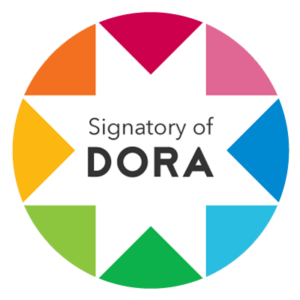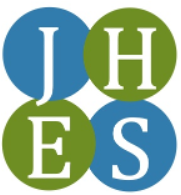About JHES
The Journal of Human Ecology and Sustainability (JHES) is the official journal of the College of Human Ecology, University of the Philippines Los Baños. It is an international peer-reviewed open-access journal published bi-annually online with an online ISSN: 3027-9100.
JHES publishes interdisciplinary, multidisciplinary, and transdisciplinary research on all aspects of the human-environment interactions, community development, and other fields of social science that link the people, organizations, and the government to achieve human-ecological security. Articles cover a broad range of topics focusing on the development of theory and practice of human ecology in the Philippines and in the international setting.
Aims and Scope
The Journal of Human Ecology and Sustainability (JHES) aims to publish original articles, case studies, short communications, and review papers in the fields of human ecology and sustainability science. The JHES welcomes submissions on the subjects of human-environment interaction. Case studies on the application of human ecological theories to achieve the UN Sustainable Development Goals (SDGs) are highly encouraged. The JHES accepts articles that include but are not limited to the following subjects:
- 1. Human nutrition and food
- 2. Social development services
- 3. Human development and family studies
- 4. Human settlements planning
- 5. Sustainable Development Goals (SDGs)
Journal Statistics
Publishing Timeline
Submission to First Decision:
3 weeks
Review Period:
19 weeks
Submission to Acceptance:
22 weeks
Acceptance to Publication:
2 weeks
Rejection Rate: 48%
Indexing & Abstracting


Copyright/Open Access Statement
JHES provides open-access to all its published content in order to further promote the expansion of knowledge and bridge the many gaps in research.
Articles are distributed under the terms and conditions of the Creative Commons Attribution License (CC BY). The copyright is retained by the author(s). Rights and permissions are inserted in the articles with the following note:
- This is an open-access article distributed under the terms and conditions of the Creative Commons Attribution (CC BY-NC-ND 4.0) license (https://creativecommons.org/licenses/by-nc-nd/4.0/), which permits unrestricted use, distribution, and reproduction in any medium, provided you give appropriate credit to the original author(s) and the source, provide a link to the Creative Commons license, and indicate if changes were made.
Article Processing Charge
Processing of manuscripts submitted to JHES is free of charge. All accepted manuscripts are published through the support of the College of Human Ecology (CHE), University of the Philippines Los Baños.
Peer Review Statement
JHES operates a double-blind peer-review system. The submitted manuscript will be evaluated by two or more experts for coherence and scientific soundness. Submitted manuscripts will also be checked for plagiarism and duplication of already published works. The Editors will decide based on the reports of the reviewers. Accepted papers will be immediately published online using a digital object identifier (DOI) and manuscript number.
Publication Ethics Statement
JHES implements a rigorous peer-review process with strict ethical policies to ensure a high quality contribution of scientific works to the field of academic publication. It follows the Committee on Publication Ethics (COPE) policies; Code of Conduct and Best Practice Guidelines for Journal Editors and the Code of Conduct for Journal Publishers.
It is expected from the authors, reviewers, and editors to follow the best-practices guidelines on research ethics. In the cases of research malpractice, data falsification, plagiarism, use of AI, authorship credit disputes, and others, such publishing ethics issues will be taken very seriously by our editors and the editorial board. To verify the originality of content, JHES uses Turnitin to check plagiarism and the use of AI.
Journal Archiving
JHES guarantees the long-term digital preservation of all published articles. Currently, all articles are archived in the College of Human Ecology Library as well as the UPLB University Library. JHES is also archived at Zenodo and is currently working to make its publications deposited in and available from multiple digital archives around the world.
